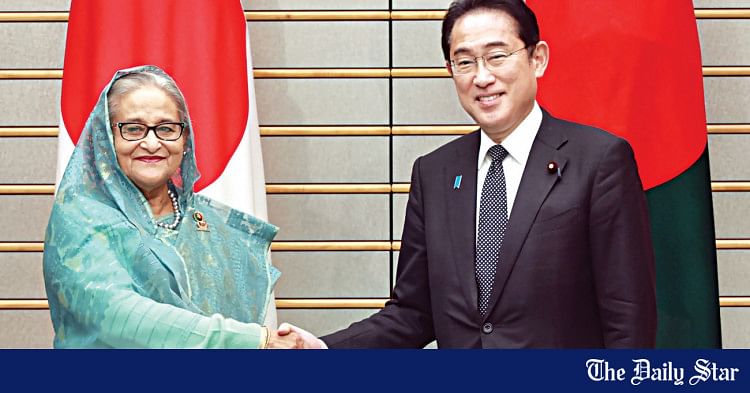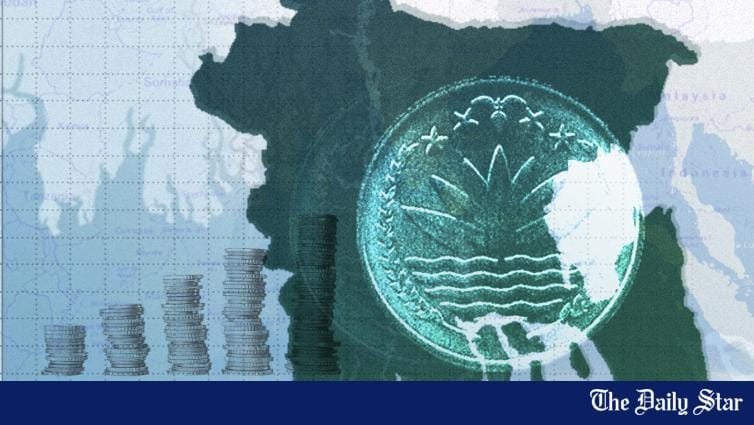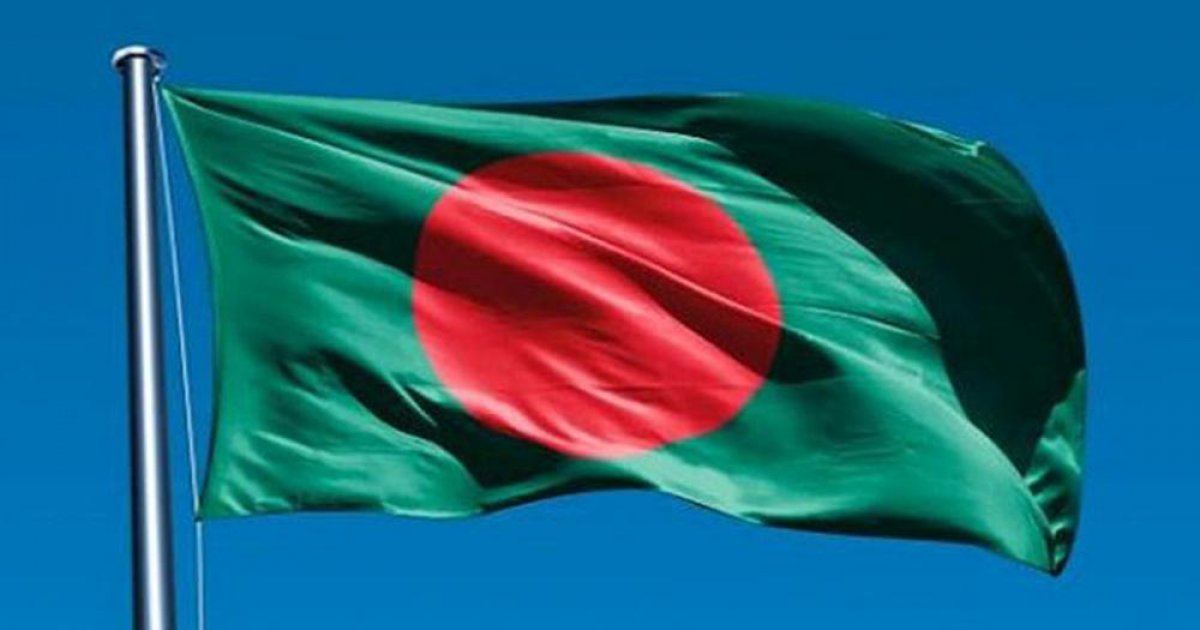US IPS in mess in S Asia, Myanmar
M Serajul Islam | Published: 00:00, Mar 15,2024
THE Anti-Corruption Commission lawyer’s contempt charge against US ambassador Peter Haas for speaking about the Nobel laureate Dr Mohammad Younus’s case was meant to embarrass because diplomats enjoy immunity from civil and criminal prosecution in the host country under the Vienna Convention of Diplomatic Relations. It has, nevertheless, flagged his roller-coaster ride so far, from the hero to most Bangladeshis and the anti-hero to the ruling party till the January 7 election and discredited by all, thereafter, in pursuit of the Biden administration’s Indo-Pacific Strategy in Bangladesh that also stands discredited in Bangladesh and Myanmar.
The IPS vision of an ‘open Indo-Pacific’ has been based upon connecting the 40 countries of the Indo-Pacific region that constitute 65 per cent of the world population and accounts for 60 per cent of the world’s gross domestic product through democracy and human rights. It is the Biden administration’s soft power strategy as opposed to the military for containing China’s rapid expansion in the Indo-Pacific region and beyond in the post-war on terror era.
Ambassador Haas’s pursuit of the IPS democracy and human rights objectives with the focus on a free and fair election in Bangladesh were by coincidence the same objectives that the Bangladesh Nationalist Part was seeking in its movement against the Awami League regime with one difference. The BNP wanted a free and fair general election under the caretaker government. The United States was silent on the caretaker government. The election that the United States wanted, however, had more conditions with which the BNP could not agree more. The BNP was confident that if the United States had its way, the BNP would win the election by a landslide.
Ambassador Haas used the mainstream media and think tanks in Dhaka to pursue the Indo-Pacific Strategy. He did not mix any diplomacy in what he did that all and sundry in Bangladesh understood easily. Ambassador Haas raised hopes of most Bangladeshis who needed help desperately for their democratic, human and electoral rights which were on a very slippery slope. They felt that with the world’s only superpower supporting these rights as its own, they would certainly regain them.
The US pursuit of the Indo-Pacific Strategy energised the BNP’s movement that it kept peaceful in awareness of the US intolerance of violence. The Bangladesh Nationalist Party held in Dhaka on October 28 the largest public gathering since 1971 for election under the caretaker government. The Awami League regime, in a planned manner, cracked down on the BNP’s peaceful mega-gathering. It arrested BNP’s top leaders, including its secretary general, locked its main office and incarcerated 25,000 of its activists at grass roots. The regime carried the crackdown in public view that foreign diplomats, including Ambassador Haas, watched in silence allowing the Awami League regime to hold the election on January 7 in a surreal way.
The January 7 election flagged unequivocally that the US Indo-Pacific Strategy could not have failed more embarrassingly than it did in Bangladesh. The European Union report on the January 7 election released very recently said it all. The election was the antithesis of what the United States wanted in every way imaginable. The election that could have sent out the strongest message in the Indo-Pacific region in favour of IPS democracy and human rights objectives sent out instead the message that the United States could not be trusted. Most Bangladeshis felt the same and regretted the confidence that they had placed in the Biden administration.
The Biden administration’s failure to encourage a free and fair election has now been exposed as not in its lack of will because leading almost to the election, it was genuinely interested in doing so. It treated the Awami League regime badly and behaved discourteously with the Bangladesh prime minister. It failed because, in the end, it gave way to India which wanted the Awami League regime to have its way. The Bharatiya Janata Party government did not want the Bangladesh Nationalist Party in power while fighting the Indian election in April and May on the hindutva mantra that considers Islam and Muslims as enemies.
India has also largely been responsible for the failure of the IPS China containment policy in South Asia. India’s failure in dealing with its neighbours has encouraged South Asian countries to open their doors to China. China, once a pariah in Bangladesh for its anti-Bangladesh role in 1971, is now the closest foreign power to the Awami League regime at a time when the BNP-led opposition has started a ‘boycott Indian goods’ movement because it believes India’s ‘all eggs in AL basket’ policy stands between them and their political, human and electoral rights.
It is, indeed, a mystery that the mandarins of the Biden administration failed to assess India’s role in South Asia before making it its indispensable IPS ally. It is equally mysterious that these mandarins backed India in Bangladesh at the proverbial eleventh hour which left South Asia disappointed to see the world’s oldest and biggest democracies together opposing most Bangladeshis in their struggle for their democratic rights.
The IPS strategy is also failing in Myanmar for the same reason as South Asia in its wrong choice of ally and failure to keep its promises and commitments.
The US Congress’ National Defence Appropriation Act of November 2022 incorporated a revised version of the Burma Act 2022. The US law created great hopes in Myanmar. The people wanted direct US military intervention. They, nevertheless, felt that the law could be an alternative to end the military dictatorship in Myanmar.
The law encouraged ethnic rebellions in Myanmar to become united which saw the brutal Tatmadaw or the military on the run for the first time in many parts of Myanmar. The People’s Defence Forces, the armed wing of the National Unity Government, the shadow government of the democratic forces the military coup ousted in 2021, successfully established a chain of command among the ethnic armed organisations that could eventually be the game changer against the Tatmadaw.
The People’s Defence Forces is, nevertheless, disappointed that the US promise in the law to provide ‘non-lethal’ weapons to them has remained a false hope. The United States has given Ukraine items ranging from radar equipment to armoured military vehicles as assistance under the same type of assistance promised to Myanmar under law in 2023. The United States has unfortunately done very little to help the rebels in Myanmar and the law has so far remained confined to paper only.
The Myanmar rebel groups namely the Arakan Army, Myanmar National Democratic Alliance Army, and Ta’ang Liberation Army in Kachin, Sagaing, Chin and Rakhine, the provinces bordering Bangladesh and India have united under the Three Brotherhood Alliances. The alliance has become a formidable threat to the Tatmadaw. Between this alliance and the unity achieved by the People’s Defence Forces with the ethnic armed organisations in the rest of Myanmar, the Tatmadaw now holds only 40 per cent of the country.
The IPS democracy and human rights bedrocks in Myanmar are, thus, failing on the trust factor flagged by the US failure to keep its promises under the US law. It is also losing out on the IPS China containment policy in Myanmar because it has no foothold in the country and its indispensable ally India is a hindrance, rather than a help, in this context. India’s relations in Myanmar are with the Tatmadaw. The rebels in the Brotherhood Alliance including elsewhere are said to be funded, trained and supplied with arms by China. India, thus, wants Bangladesh’s army to distance itself from the Arakan Army while grapevines suggest that the United States wants the opposite. It wants the Bangladesh army to be its proxy and, thereby, give it the foothold in Myanmar that it does not have now.
China has a ‘heads I win, tails you lose’ advantage in Myanmar because of its two-tier style of conducting foreign relations. Beijing kept the best of relations with the central government or the Tatmadaw while the Communist Party of China, with the rebel groups. The IPS shows no promise in Myanmar for the same reasons as in South Asia. The reasons are, first, the appallingly low rating of the United States in international politics on the trust factor and, second, its wrong choice of allies. The United States lost its best chance for the Indo-Pacific Strategy by failing in Bangladesh and failing in Myanmar for the same reasons.
The Biden administration can bring the Indo-Pacific Strategy back on track by working on the reasons it failed in Bangladesh and is failing in Myanmar. If it chooses to do so, it may be worthwhile to inquire whether Americans of Indian origin and supporters of the Bharatiya Janata Party’s hindutva mantra at the White House and the state department had influenced Bangladesh’s general election. The grapevines suggest that they did.
M Serajul Islam is a former career ambassador.
M Serajul Islam | Published: 00:00, Mar 15,2024
THE Anti-Corruption Commission lawyer’s contempt charge against US ambassador Peter Haas for speaking about the Nobel laureate Dr Mohammad Younus’s case was meant to embarrass because diplomats enjoy immunity from civil and criminal prosecution in the host country under the Vienna Convention of Diplomatic Relations. It has, nevertheless, flagged his roller-coaster ride so far, from the hero to most Bangladeshis and the anti-hero to the ruling party till the January 7 election and discredited by all, thereafter, in pursuit of the Biden administration’s Indo-Pacific Strategy in Bangladesh that also stands discredited in Bangladesh and Myanmar.
The IPS vision of an ‘open Indo-Pacific’ has been based upon connecting the 40 countries of the Indo-Pacific region that constitute 65 per cent of the world population and accounts for 60 per cent of the world’s gross domestic product through democracy and human rights. It is the Biden administration’s soft power strategy as opposed to the military for containing China’s rapid expansion in the Indo-Pacific region and beyond in the post-war on terror era.
Ambassador Haas’s pursuit of the IPS democracy and human rights objectives with the focus on a free and fair election in Bangladesh were by coincidence the same objectives that the Bangladesh Nationalist Part was seeking in its movement against the Awami League regime with one difference. The BNP wanted a free and fair general election under the caretaker government. The United States was silent on the caretaker government. The election that the United States wanted, however, had more conditions with which the BNP could not agree more. The BNP was confident that if the United States had its way, the BNP would win the election by a landslide.
Ambassador Haas used the mainstream media and think tanks in Dhaka to pursue the Indo-Pacific Strategy. He did not mix any diplomacy in what he did that all and sundry in Bangladesh understood easily. Ambassador Haas raised hopes of most Bangladeshis who needed help desperately for their democratic, human and electoral rights which were on a very slippery slope. They felt that with the world’s only superpower supporting these rights as its own, they would certainly regain them.
The US pursuit of the Indo-Pacific Strategy energised the BNP’s movement that it kept peaceful in awareness of the US intolerance of violence. The Bangladesh Nationalist Party held in Dhaka on October 28 the largest public gathering since 1971 for election under the caretaker government. The Awami League regime, in a planned manner, cracked down on the BNP’s peaceful mega-gathering. It arrested BNP’s top leaders, including its secretary general, locked its main office and incarcerated 25,000 of its activists at grass roots. The regime carried the crackdown in public view that foreign diplomats, including Ambassador Haas, watched in silence allowing the Awami League regime to hold the election on January 7 in a surreal way.
The January 7 election flagged unequivocally that the US Indo-Pacific Strategy could not have failed more embarrassingly than it did in Bangladesh. The European Union report on the January 7 election released very recently said it all. The election was the antithesis of what the United States wanted in every way imaginable. The election that could have sent out the strongest message in the Indo-Pacific region in favour of IPS democracy and human rights objectives sent out instead the message that the United States could not be trusted. Most Bangladeshis felt the same and regretted the confidence that they had placed in the Biden administration.
The Biden administration’s failure to encourage a free and fair election has now been exposed as not in its lack of will because leading almost to the election, it was genuinely interested in doing so. It treated the Awami League regime badly and behaved discourteously with the Bangladesh prime minister. It failed because, in the end, it gave way to India which wanted the Awami League regime to have its way. The Bharatiya Janata Party government did not want the Bangladesh Nationalist Party in power while fighting the Indian election in April and May on the hindutva mantra that considers Islam and Muslims as enemies.
India has also largely been responsible for the failure of the IPS China containment policy in South Asia. India’s failure in dealing with its neighbours has encouraged South Asian countries to open their doors to China. China, once a pariah in Bangladesh for its anti-Bangladesh role in 1971, is now the closest foreign power to the Awami League regime at a time when the BNP-led opposition has started a ‘boycott Indian goods’ movement because it believes India’s ‘all eggs in AL basket’ policy stands between them and their political, human and electoral rights.
It is, indeed, a mystery that the mandarins of the Biden administration failed to assess India’s role in South Asia before making it its indispensable IPS ally. It is equally mysterious that these mandarins backed India in Bangladesh at the proverbial eleventh hour which left South Asia disappointed to see the world’s oldest and biggest democracies together opposing most Bangladeshis in their struggle for their democratic rights.
The IPS strategy is also failing in Myanmar for the same reason as South Asia in its wrong choice of ally and failure to keep its promises and commitments.
The US Congress’ National Defence Appropriation Act of November 2022 incorporated a revised version of the Burma Act 2022. The US law created great hopes in Myanmar. The people wanted direct US military intervention. They, nevertheless, felt that the law could be an alternative to end the military dictatorship in Myanmar.
The law encouraged ethnic rebellions in Myanmar to become united which saw the brutal Tatmadaw or the military on the run for the first time in many parts of Myanmar. The People’s Defence Forces, the armed wing of the National Unity Government, the shadow government of the democratic forces the military coup ousted in 2021, successfully established a chain of command among the ethnic armed organisations that could eventually be the game changer against the Tatmadaw.
The People’s Defence Forces is, nevertheless, disappointed that the US promise in the law to provide ‘non-lethal’ weapons to them has remained a false hope. The United States has given Ukraine items ranging from radar equipment to armoured military vehicles as assistance under the same type of assistance promised to Myanmar under law in 2023. The United States has unfortunately done very little to help the rebels in Myanmar and the law has so far remained confined to paper only.
The Myanmar rebel groups namely the Arakan Army, Myanmar National Democratic Alliance Army, and Ta’ang Liberation Army in Kachin, Sagaing, Chin and Rakhine, the provinces bordering Bangladesh and India have united under the Three Brotherhood Alliances. The alliance has become a formidable threat to the Tatmadaw. Between this alliance and the unity achieved by the People’s Defence Forces with the ethnic armed organisations in the rest of Myanmar, the Tatmadaw now holds only 40 per cent of the country.
The IPS democracy and human rights bedrocks in Myanmar are, thus, failing on the trust factor flagged by the US failure to keep its promises under the US law. It is also losing out on the IPS China containment policy in Myanmar because it has no foothold in the country and its indispensable ally India is a hindrance, rather than a help, in this context. India’s relations in Myanmar are with the Tatmadaw. The rebels in the Brotherhood Alliance including elsewhere are said to be funded, trained and supplied with arms by China. India, thus, wants Bangladesh’s army to distance itself from the Arakan Army while grapevines suggest that the United States wants the opposite. It wants the Bangladesh army to be its proxy and, thereby, give it the foothold in Myanmar that it does not have now.
China has a ‘heads I win, tails you lose’ advantage in Myanmar because of its two-tier style of conducting foreign relations. Beijing kept the best of relations with the central government or the Tatmadaw while the Communist Party of China, with the rebel groups. The IPS shows no promise in Myanmar for the same reasons as in South Asia. The reasons are, first, the appallingly low rating of the United States in international politics on the trust factor and, second, its wrong choice of allies. The United States lost its best chance for the Indo-Pacific Strategy by failing in Bangladesh and failing in Myanmar for the same reasons.
The Biden administration can bring the Indo-Pacific Strategy back on track by working on the reasons it failed in Bangladesh and is failing in Myanmar. If it chooses to do so, it may be worthwhile to inquire whether Americans of Indian origin and supporters of the Bharatiya Janata Party’s hindutva mantra at the White House and the state department had influenced Bangladesh’s general election. The grapevines suggest that they did.
M Serajul Islam is a former career ambassador.
Last edited:











 - China is a Time Tested Friend and a Strategic Partner of Bangladesh
- China is a Time Tested Friend and a Strategic Partner of Bangladesh

